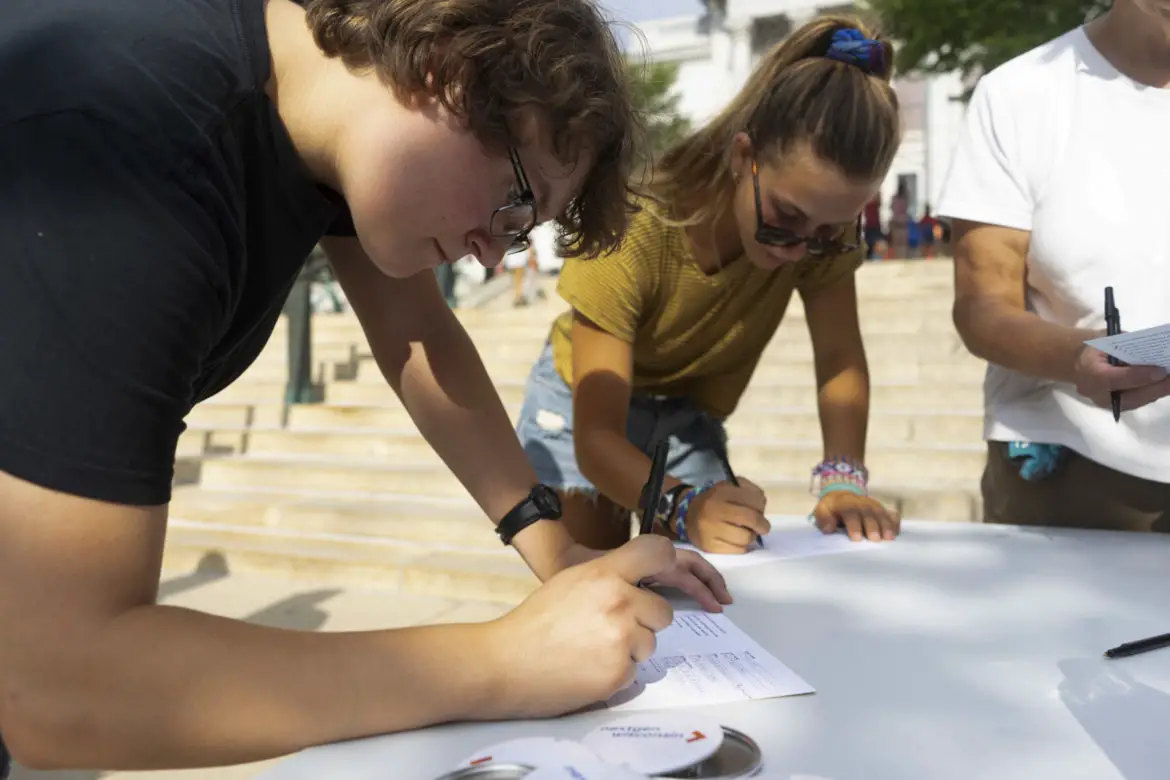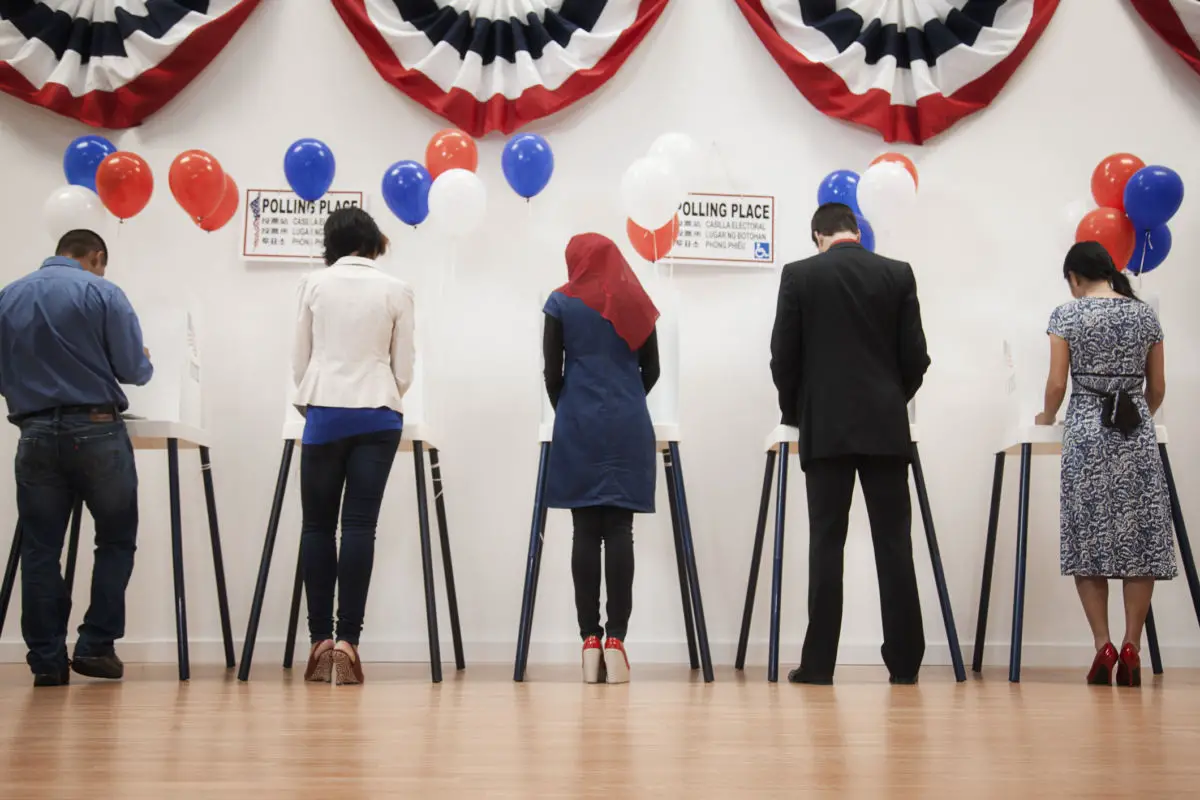Whether you’re tired of hearing your neighbor’s opinion on the upcoming election or find yourself participating in the discussion, you can’t deny the impact it could have on the United States’ future. And, regardless of which political party you align with, it’s important to acknowledge how a decision made in America can echo throughout the whole world. This is why you’re constantly hearing people talk about how important it is to go out and vote on Nov. 6.
For some, voting just isn’t appealing. I’ve noticed on numerous occasions how flippant some of my peers can be regarding political issues. Some people just don’t care about what’s happening in the world. Not all students are like that though, and some even seek out fellowships and internships that give them opportunities to become more involved in politics on their college campuses.
But how do these political activists get college students to vote? Sometimes, it takes more than a candidate campaigning across the city to catch someone’s attention. Queens University of Charlotte’s civic engagement fellow Alyssa Pacheco is a junior studying political science, and she’s made it her goal to get as many students on Queens’ campus to vote as possible.
It can be challenging to encourage people to become politically and civically engaged on a normal year, but Pacheco says that this election has many wanting to vote more than usual. Of course, there may not be a spike in voter interest everywhere. Challenges still persist in many places when it comes to student voting. The simple fact is that some colleges don’t know how to relay political information back to their students. So, if your school doesn’t provide you with information, how do you get or give proven facts? Pacheco had a few words of wisdom for other activists who want to get their schools involved.
Be Available
When students have questions, who should they go to? By claiming the title of a “political activist,” you’ve taken on the responsibility of being a resource for those who need it. Not only is Pacheco a politically and civically engaged student who wants to make a difference, but she is also, as mentioned, a civic engagement fellow.
This fellowship is sponsored by the Campus Election Engagement Project and, for North Carolina fellows, the North Carolina Campus Compact. Pacheco says that students participating in this fellowship have “the role of informing students about voting and voter registration and urging students to take part in the voting process.” For her, this means holding several voter registration drives (she held four of them over the course of two months), creating social media accounts, hanging up posters with information and making sure students know she’s always available for questions.

Let the Students Come to You
Specifically, Pacheco says, “Don’t be annoying, let them come to you.” It’s important that students don’t feel pressured to make a choice or feel obligated to engage. “It sounds weird,” she added, “but I try to really just be there and available. I know that students don’t like being constantly harassed, so I try to encourage rather than force.”
There’s nothing more annoying than walking to the cafeteria and being bombarded by anyone trying to sell or get you to sign up for something. But if you mention something about the future of an entire country, you’re bound to stress somebody out. Pacheco has learned that it’s all about the approach. The wrong approach can kill your plan before it’s even started.
“The first step to voting is making someone realize that they have the potential to enact real change in the world,” Pacheco says. “Once they realize that, the rest takes care of itself.” If you’re trying to make students on your campus more politically engaged, make them care. Find information that is vital for voters to be informed when at the polls, create pamphlets and distribute them. It’s more likely that a student will find something they feel strongly about if it’s easier to find.
Provide Opportunities for All Students to Be Involved
Learning about what’s going on in the world politically is intimidating for many people. Even if you have students on your campus who wants to be engaged, it’s challenging for them to know how to go about it. Do they want to volunteer at a voter registration drive? Is there a protest happening they want to go to? Did something happen on campus that has encouraged them to speak up and plan an event to bring awareness to it?
There are events occurring all across the country that inspire students every single day. You have to use prominent issues around campus to your advantage. Pacheco even took it upon herself to make voter registration and voting fun. She planned competitions and celebrations for National Voter Registration Day and has a few coming up for election day as well.
It may seem like a lot of work, but a fun event with food can make the difference between having six students registered to vote and having 60 registration forms to send to the Board of Elections. You can also plan an event, with the help of professors or other advisors, that brings candidates to your university. It’s that much more memorable to hear someone speak in person rather than reading their platform on a website. (No judgement here, of course, it’s just also more fun to listen to someone speak.)

It doesn’t matter if you’re a civic engagement fellow or just a student who wants to learn more; you have the power to help your friends get involved as well. While it’s a little too late to register, you can check your registration to find your precinct and other district information. Some websites will even let you see a sample ballot. It’s an easy way to find out who’s running for which positions and who they’re campaigning against.
Once you find the information you need, send it to everyone. Don’t let your peers hide away during this election season when it could be their vote that makes the difference between the reality the U.S. needs and what our country gets.
















